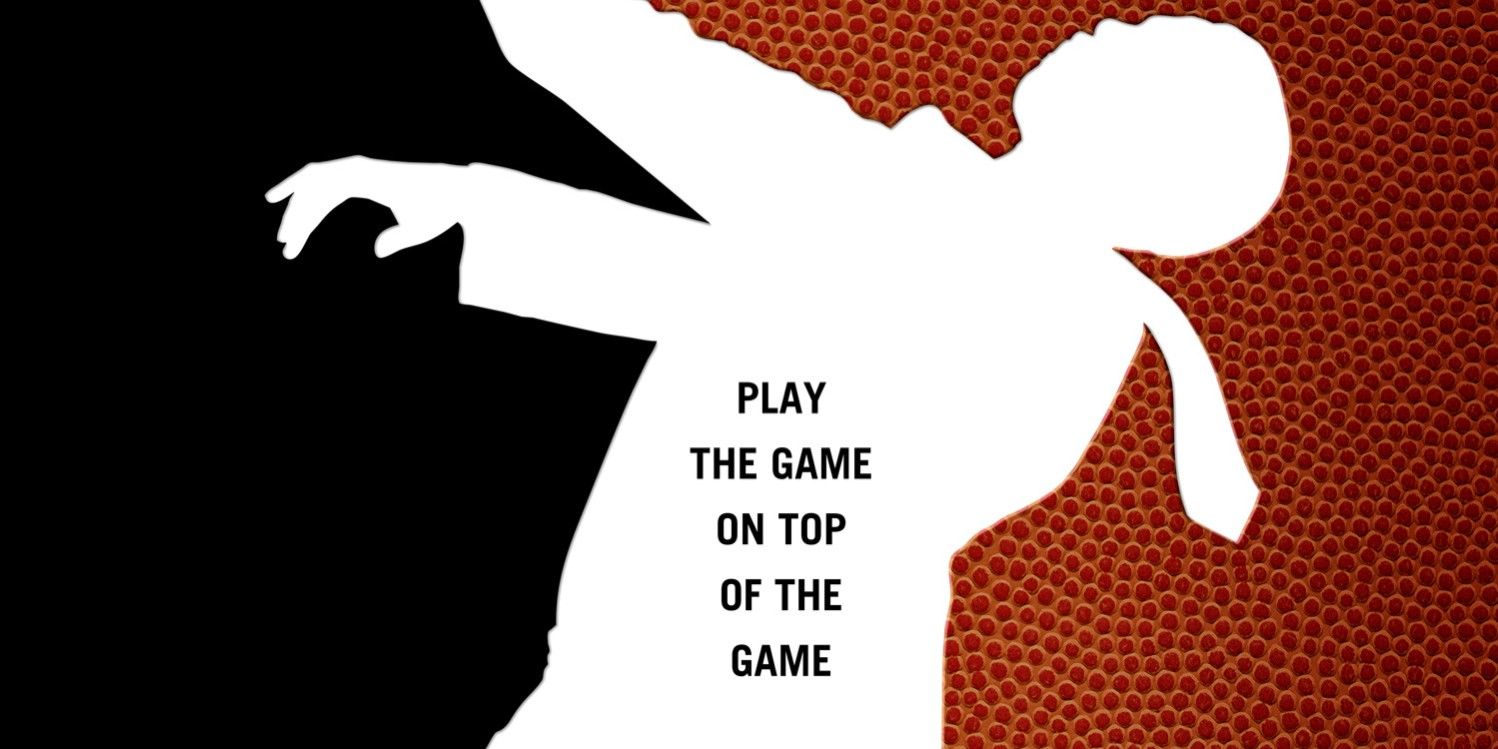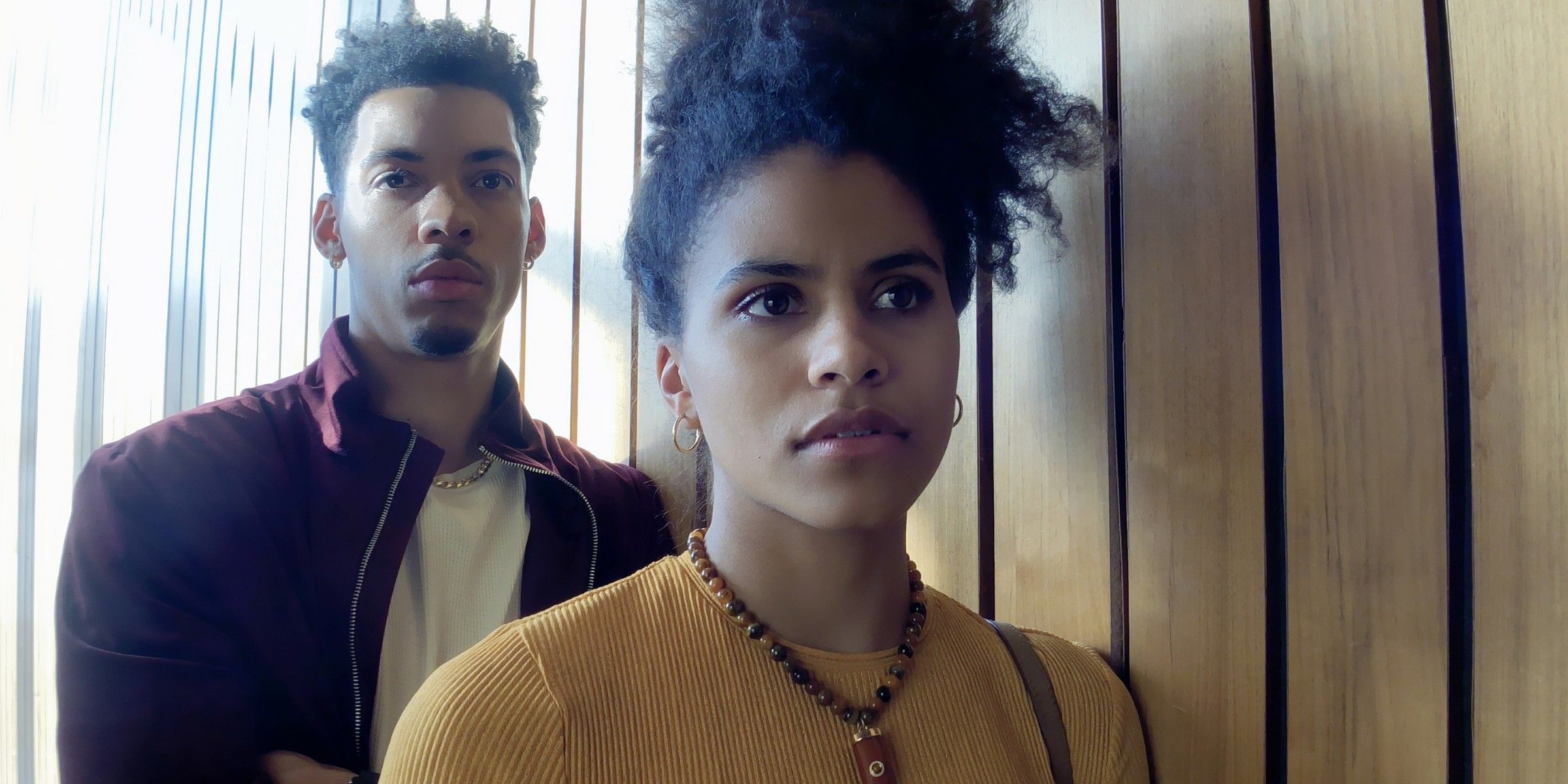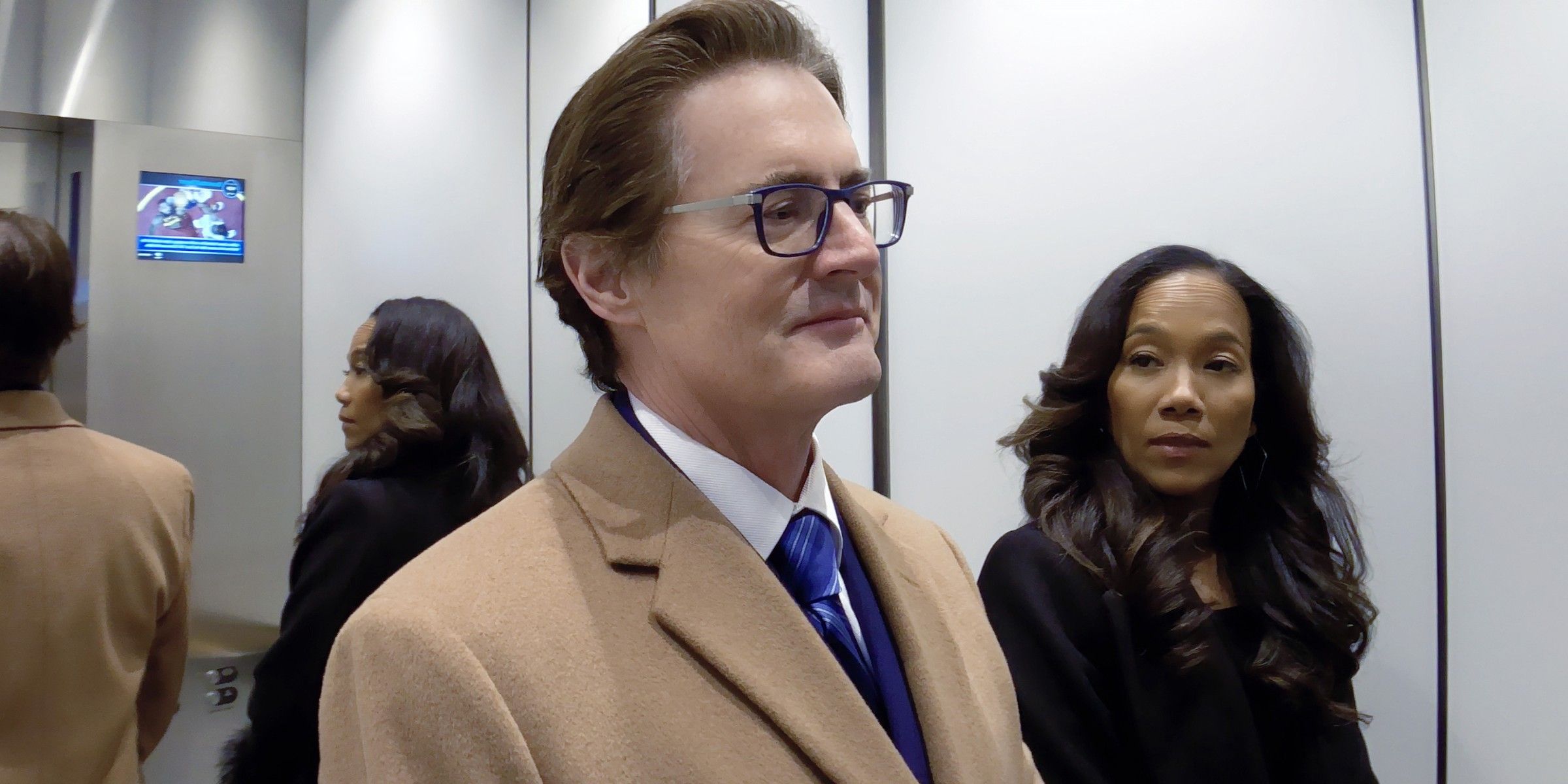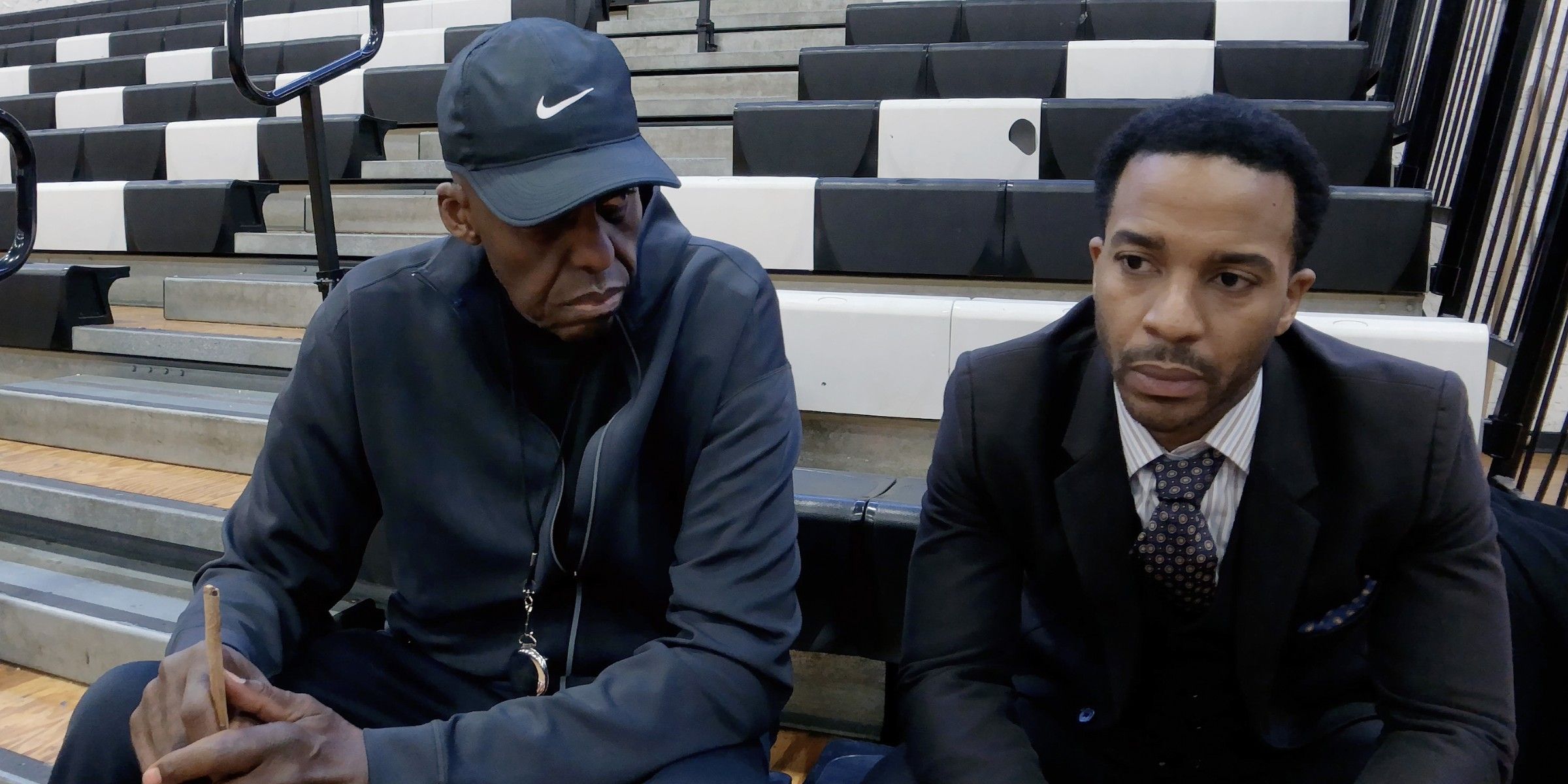High Flying Bird doesn't quite manage to change 'the game' but, under Soderbergh and McCraney's guidance, it certainly makes an entertaining go at it.
One-man army director Steven Soderbergh's never been particularly interested in playing by the rules. He helped revolutionize independent film in the early '90s with sex, lies, and videotape, and for years after oscillated from commercial studio fare to experimental offerings (some successful, others not). Recently, following his - very - brief retirement, Soderbergh's turned to shooting films on an iPhone 7, starting with his psycho-thriller Unsane. His new movie, High Flying Bird, was also shot with an iPhone and is forgoing the traditional theatrical route by premiering on Netflix, instead. It also pairs Soderbergh with another rule-breaking storyteller in playwright and Oscar-winning screenwriter Tarell Alvin McCraney of Moonlight fame. High Flying Bird doesn't quite manage to change 'the game' but, under Soderbergh and McCraney's guidance, it certainly makes an entertaining go at it.
André Holland stars in High Flying Bird as Ray Burke, a sports agent who finds himself between a rock and a hard place. With the NBA in the midst of a major lockout, Ray's boss (Zachary Quinto) has suspended his salary and expense accounts, even as their workplace grows emptier with each passing day. Meanwhile, Ray's client Erick (Melvin Gregg) - a star college player who was drafted by a New York team - finds himself in trouble after agreeing to an ill-advised loan without consulting Ray, and Ray's assistant Sam (Zazie Beetz) informs him that she's no longer his employee. Fortunately, Sam is still loyal to her old boss and is willing to help him carry out the wheeling and dealing necessary to not only help Erick, but maybe even end the lockout for good.
To do so, however, the pair have to navigate a treacherous world of agents and businessmen, ranging from Myra (Sonja Sohn) - the intelligent and no-nonsense representative for the basketball players association - to money-grubbing team owners (Kyle MacLachlan), and the domineering mother/agent for one of Erick's teammates (Jeryl Prescott). Luckily for him, Ray's always a few steps ahead of the competition and has already put his master plan in motion, with a little unknowing assistance from Spencer (Bill Duke), a former player-turned youth basketball couch. But can Ray stay ahead of his fellow power-players and win "the game on top of the game" before they even know what he's up to?
Ostensibly, High Flying Bird is a movie about race and power dynamics in the modern sports world, and can be appreciated as purely that. The film is fueled by McCraney's highly articulate and eloquent dialogue, which would be just as pleasurable to listen to if his screenplay was staged as a play (a testimony to his background in theater, no doubt). In Soderbergh's hands, however, it also works as great cinema, thanks to the director's knack for rhythmic editing and knowing exactly how long to allow a single shot - or even an entire scene - to linger before moving onto the next plot beat. Holland is equally terrific as the movie's protagonist and gets a chance to really shine here, even more so than he did on his previous collaboration with Soderbergh (Cinemax's historical medical drama series, The Knick). As quietly soulful as he was as Chiron's old schoolmate Kevin in Moonlight, Holland is quick-thinking and light on his feet here, delivering McCraney's rapid-fire monologues without breaking a sweat.
On a meta-storytelling level, however, High Flying Bird is also a movie about filmmakers working around a studio system obsessed with IPs and brands to deliver their art to the masses. Streamers like Netflix are even mentioned by name here, making it all the easier to draw parallels between the film's tale about an NBA lockout and how once-marginalized artists (such as McCraney) and/or those who aren't necessarily keen on studio filmmaking right now (like Soderbergh) are increasingly using alternate platforms to bypass Hollywood's outdated ways of doing business. At the same time, High Flying Bird doesn't pretend to have a permanent solution to the power struggle between players and owners in professional sports leagues, much less the questions of where and how moviemaking should evolve in the future. Nevertheless, it makes for an enjoyable and surprisingly breezy cinematic essay about those topics.
That's all the more impressive, considering High Flying Bird takes a pretty frank look at the personal meaning basketball holds for disenfranchised black athletes, and how that clashes with the realities of working in a business that's still largely operated and owned by white executives. Soderbergh does his own part to set the film's tone by fixing his camera on steely glass buildings and offices (where agents like Ray conduct their business), and using cool natural light to make the whole thing look and feel like it could almost be a documentary. High Flying Bird further integrates black and white interviews with real professional basketball players (like Reggie Jackson and Donovan Mitchell) into the mix, in a way that allows their personal insights about the NBA to compliment the movie's observations, much like a real documentary would. Of course, Soderbergh's too expressive a cinematographer to avoid adding some technical flourishes (most notably, confident tracking shots), to spice things up a little.
As successful as High Flying Bird is on the whole, it's still not quite the mold-breaker it fancies itself to be. While the film's third act twists and turns are satisfying and well-planted, it meanders a bit too much in its first half. Similarly, there are a handful of subplots here - be it a sudden romance between two characters or a tragedy in Ray's backstory - that don't quite land emotionally, but still serve the overarching narrative and further help to establish character motivations. High Flying Bird is more interested in ideas than people, but it gives its supporting cast enough to work with to avoid feeling like it's wasted them (even actors like Quinto, who are barely in the film at all). Its efforts at inclusivity are also welcome, as it provides the characters played by Beetz, Prescott, and Sohn (the latter of whom portrays a queer woman in a position of power, no less) with some proper agency, allowing them to match wits and words with Ray in their scenes together.
While the film wasn't necessarily designed with Netflix in mind (Soderbergh gave them the first-look after they expressed interest in Unsane), the streamer might be the perfect home for High Flying Bird. Its iPhone photography doesn't really benefit from being shown on the big screen and it's the sort of partially experimental indie drama - one that's not really aspiring to become an awards season contender - that could've easily gotten lost in the fray, had it received a limited theatrical rollout. However, by going straight to Netflix, it has a better chance of reaching the people who want to see it in the first place. It's certainly worth checking out too, especially for those who hope to see Soderbergh and McCraney continue to change things up with their projects in the future.
TRAILER
High Flying Bird is now available for streaming through Netflix. It is 90 minutes long and is currently not rated, but contains mature language.
Let us know what you thought of the film in the comments section!




